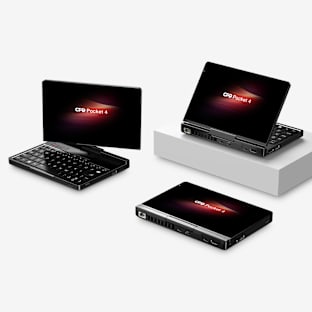We can Keep you Off the Grid. Protecting you and your Personal Data, Banking Information, and Electronic Footprint. The creation of these new blocking case is a compliation of material we already are working with and making into protective sheets. This campaign will allow us to optimize the material, answer some design and function questions, and create a affordable consumer product. We hope you will support us.
![]()
Hide Yourself, Your Location, and Your Data
Eagle Innovations, LLC is a small niche market technology development company focusing on conceptualizing and developing products in the electronic security, health and safety, and energy related markets. Our products are solutions for “real world” problems and needs. Some of our principals have experience and have filed patent applications in combinatorial resin systems utilizing Polyurea, Polyurethane, and nano-technologies to achieve these product solutions along with running successful R&D projects for many years.
We are working on the sizing and shaping that is required to hide a Tablet
One security concern our customers have brought to our attention is the proliferation of RFID scanners, readers, and phone cloning technologies which are putting the privacy and security of their conversations and data at risk. RFID scanners, Wi-Fi interceptors, data collection devices, and malware which can read or clone your cell phone without your knowledge are serious threats. These threats exceed our ability to maintain our personal privacy and confidentiality. Click the following link to hear the report from NPR radio network about your phone actively scanning and operating while you think it is dormant on your desk: http://tinyurl.com/kjc38nt.
Another reality of today's signal tracking capabilities is that your cell phone is actively being tracked without your authorization. Below is a link for a current news story about software tracking for marketing without your knowledge.
Facebook's location-based ads pitch you on the store you just walked by!
“If you’re like me, you might stroll past
a local coffee shop or book store numerous times before you notice it’s there
or go inside. Facebook thinks an ad might give that extra nudge. On Tuesday, the company began rolling out a new feature for local advertising that lets businesses target users based on whether they've gone near the physical store that’s being
advertised. The ad could pop up in your Facebook feed around the same time you
walk by, or some time later. “
Read More At http://tinyurl.com/kqgq7wr
Source: PCWORLD.COM Oct. 8th, 2014
Different Stitching and Material for a tablet in grey
![]()
Given these new invasive technologies, we believe that a technology which enables the average consumer to regain their privacy is imperative. We must have confidence in the security of our financial and business information as more and more personal financial and business data is held in our phones. Consider that all of the information in your wallet, on your phone or tablet is potential fodder for criminals, corporate espionage and other “prying eye” data surveillance personnel. As we live our lives in a free society, we want to maintain control of who we are, where we are, and what digital activities we are engaged in without unknown persons watching or recording.
To mitigate these threats, we have begun a project by establishing a “roadmap” to guide our development efforts from proof of concept through product commercialization. This involves the development of a product that will receive a special treatment which will enhance the protective security of your electronic devices. This treatment will provide an active blocking mechanism to impede unauthorized communications to and from your phone and wireless device (it also
means you won’t get any calls or texts either). Think of it as a "Dead Zone" or an electronic silencer. So we stop the leaks and block the attacks. As it has been said “You can’t hack what you can’t see.” or for our purposes “You can’t eavesdrop on a
signal that isn’t there.” The “roadmap to success” includes several attributes
that we believe will be needed for widespread acceptance and penetration into
the marketplace. First, the Dead Zone products need to be simple to use; secondly, there should be products manufactured for a variety of devices and environments; and lastly, should be able to be used with multiple electronic devices.
Below are other news reports of tracking activities.
Police in These 15 States Use Tracking Devices to Collect
Data from Cell Phones
Jun. 12, 2014, 4:05 PM
"A new map from the ACLU shows 15 states where local law enforcement is tracking cell phone data. Local and state law enforcement in 15 states use fake cell towers, also known as "stingrays," according to a map released by the American Civil Liberties Union on Thursday. Stingrays are used to track the location of
targeted phones, and can also intercept phone calls and text messages.
According to the ACLU, when these devices are used to track a suspect, stingrays inadvertently track the information of bystanders' phones. Stingrays can also send electronic signals into private residences, learning data about the owners and locations of phones within the buildings, which worries privacy advocates.
Besides the 15 states named in the ACLU's report, the ACLU also listed 12 U.S. government agencies that use stingrays, including the National Security Agency and the U.S. Army. The ACLU's new map comes just two days after an activist filed a lawsuit against the Chicago Police Department, demanding to know how the city uses its own stingray devices."
Read more: http://tinyurl.com/ng88s9m
SOURCE: http://www.businessinsider.com/police-cell-phone-data-tracking-2014-6#ixzz3CS2z3TMX
How easy is it to have your phone hacked?
It's as easy as dialing your phone when it has a malware program installed.
Source:
http://tinyurl.com/nrehd7l
This article, which is a little older, makes one wonder what are the current tracking capabilities.
MONITORING YOUR MOVEMENTS IN A SHOPPING MALL
Update November 23, 2011
"Many of the news media outlets here in Southern California were making a big deal today about the report that the Promenade Mall in Temecula had started a system where they can track where cell phones are moving about inside the mall. Of course, the mall managers don't care about the cell phones -- what they are tracking is the owners of the cell phones.
The news media immediately questioned if this was an invasion of
privacy? No, it's not, says the mall. No data is being ripped from
the cell phones, no phone numbers or emails are being detected, but they are
just using the electronics of the cell phones to watch where patrons move about
in their mall.
Actually this is a good idea as it could help mall designers do a
better job of creating and managing shopping mall layouts. But it could
also cause some problems in the future for shoppers, and here are some
examples:
If the mall detects that we go to malls first for the food courts
or for the coffee shops, they might bury the food courts and the coffee shops
deeper inside the mall so we will have to pass more stores to get there.
The same goes for restrooms. And if the mall discovers that we are going
to shoe stores first, the shoe stores might be moved to interior mall
locations.
If the mall detects that we are not stopping to look at the
advertising signs and banners inside the open spaces of the mall, they might
change the walkways into some sort of maze that would force us to look at the
signs and banners as we go through the walkways.
If the mall detects that we walk quickly past certain stores, the
mall managers might want to take a closer look at those stores to find out
why. And if the mall detects that we are lurking outside the fronts of
certain stores but not going in, the mall managers might ask Victoria's Secret
to cover up more of its models. (Admit it, you knew that was coming.)
The mall might also be able to determine where it needs more
cleaning services, security services, and seats -- or where it should remove
seating areas. If the mall determines that a particular store is getting
a lot of foot traffic it might raise the store's rent. If the mall finds
a particular store gets a lot of traffic but that store is near a mall door,
the mall might move that store further from the door so more traffic will pass
by other stores.
And if the mall wants its shoppers to stay in part of its mall
longer, it might offer some form of entertainment to keep us there. And
if the mall finds we are walking at a slow pace in other sections, it might
decide to install a moving sidewalk.
This kind of research could be done the old-fashioned way, with
managers watching and taking notes. But high tech makes this kind of
research easy. If you don't like the idea of tracking your cell phone signals,
the malls could put RFID tracking chips in the shopping bags that the stores
use and get similar information."
Source: http://alanbestbuys.com/id143.html
Additional Sources:
News 8 reporting on this Technology http://tinyurl.com/lkexpo2
Here is an update:
The Malls “Says it has turned off the tracking, But
did they? Knowing the new face book location based ads, their are organization which have develop additional methods and programs to track you. And where else is this technology being used without our knowledge? Retail surveillance is happening. Where else is it happening?
July 17th, 2013 11:56 AM ET
Retailers are now snooping on your shopping habits with cutting edge
technology to follow your whereabouts inside stores, CNN's Pamela Brown
reports.
"The in-store analytics makes it possible for retailers to understand things like
where they go, where they stop. And ultimately how all of that translates to
sales at the register," says Tim Callan, Chief Marketing Officer, RetailNext. Upscale department chain Nordstrom recently ended a test program gathering pings from Wi-Fi signals on customer's smart phones as they browsed through the store.
Some were outraged after learning about the in-store surveillance. "Way over the line," one consumer wrote on Facebook. What do you think? Is this fair or have stores gone too far in terms of privacy?
Source: http://newday.blogs.cnn.com/2013/07/17/retail-stores-are-tracking-your-cell-phone/
And from RetailNext own web site:
“The most advanced in-store analytics solution available.”
In-store analytics is a collection of systems working together to organize, analyze, and visualize massive amounts of diverse retail data.”
Source: http://retailnext.net/how-it-works/
Use of Funds and Project Risks
You can take control back! With your support and our development team working together, we can neutralize these threats. We have established three different development paths to pursue to increase our chances of success. Of course we may not be able to find the ideal material mix which will provide all of the properties we require. This would result in the necessity of another project.
We might not be able to manufacture a viable system at a low enough entry point for everyone. This may make the Dead Zone products non commercially viable in the future. We believe that this project merits a Crowd Sourcing approach to bring an affordable and easily used solution to the general public.
We work in the materials industry and therefore geopolitical or other sourcing challenges may make completion of the project impractical. If we don't reach our goal of $14.800 all product based perks are in jeopardy and we may not be able to fulfill them if we haven't received the funds required for successful product development.































































